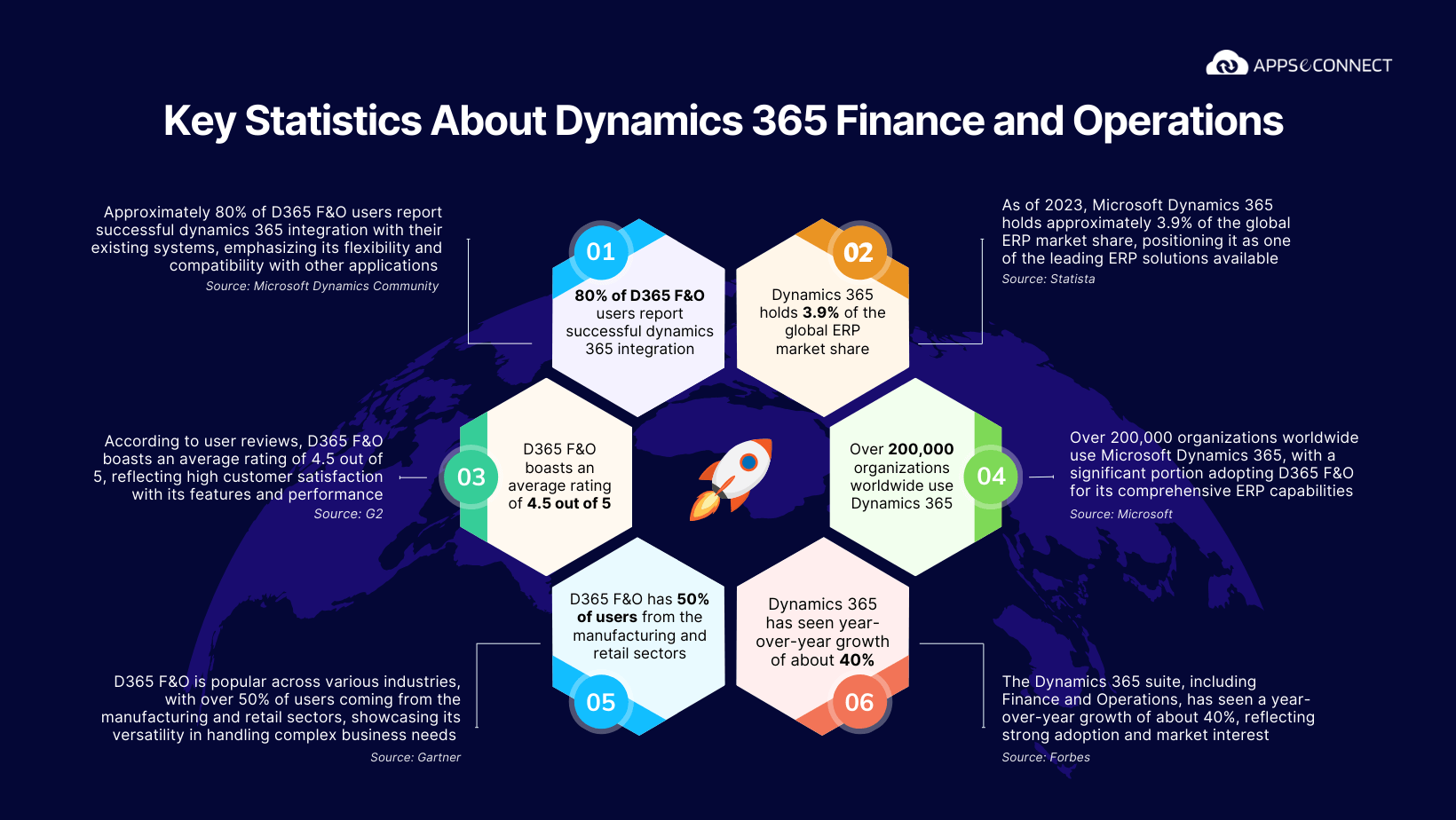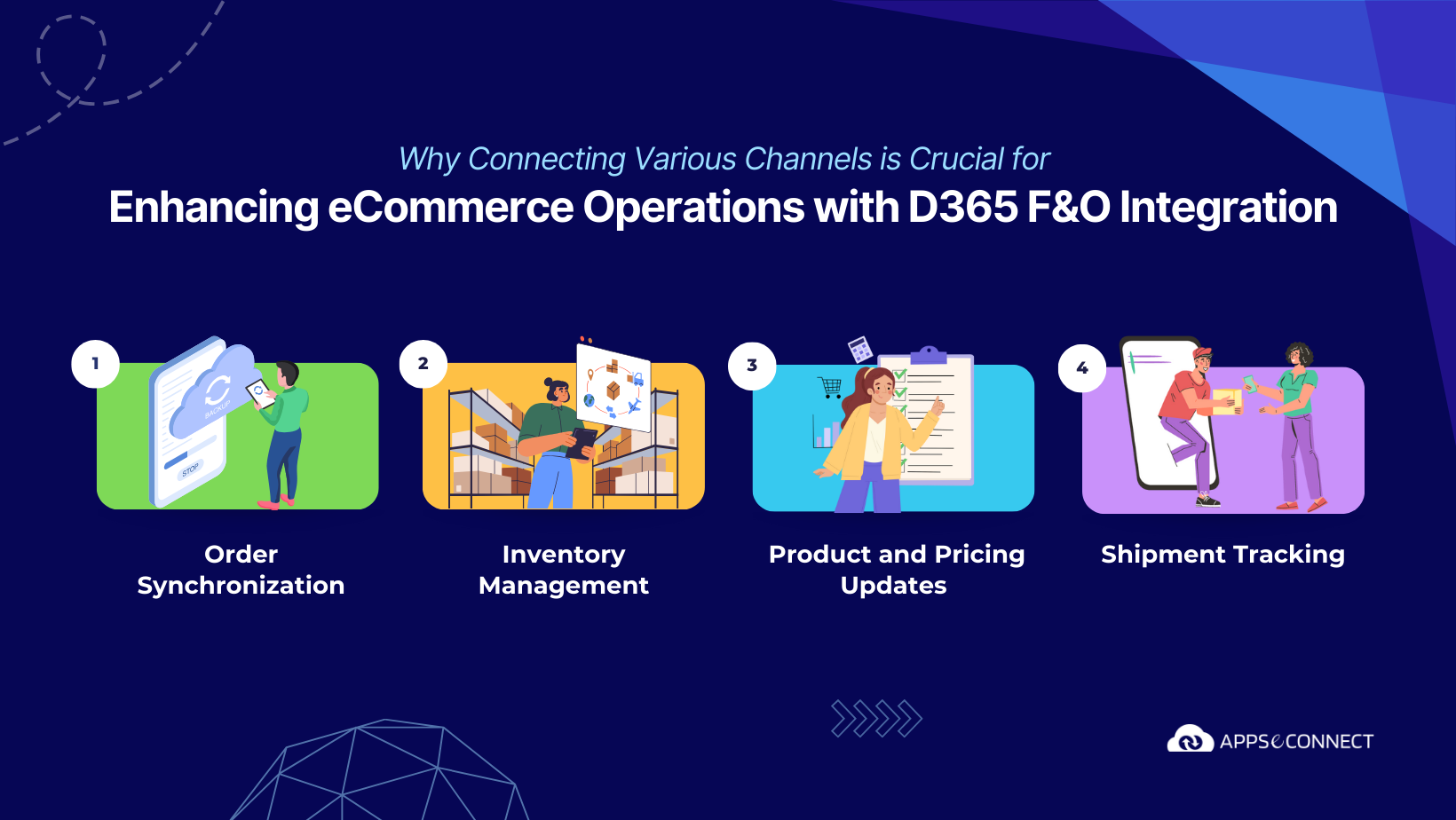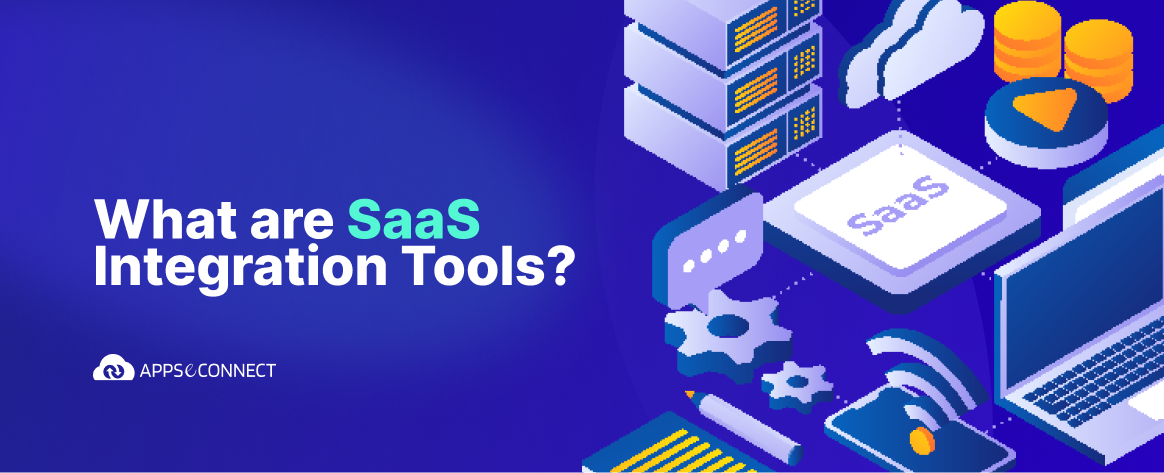Today we live in the world of a hyper-competitive eCommerce world, where everyone is looking to maximize profit. Success for an eCommerce business depends largely on delivery and operational efficiency. Managing orders, inventory, and finances can quickly become overwhelming, especially when catering to both B2B and B2C customers.
To maximize customer satisfaction in an eCommerce business, it is essential to optimize every aspect, from backend processes to frontend functions. Enterprise Resource Planning (ERP) provides an edge in identifying bottlenecks, establishing communication between various departments, and delivering overall business efficiency.
Dynamics 365 Finance and Operations (D365 F&O), one of the leading ERPs in the market, offers a range of capabilities that automate critical business processes, addressing a wide array of management needs for any business. Being fully cloud-based, this ERP supports customizations and is flexible enough to mold itself to any business, ensuring enterprises can optimize their operations without altering core business processes.
In this article, I’ll provide a perspective on why D365 F&O could be an ideal fit for an eCommerce business and discuss when to use it and when to avoid it. The aim is to help you make an informed decision on whether to adopt D365 F&O or consider alternatives.

Benefits of Using Dynamics 365 Finance and Operations for eCommerce
Dynamics 365 Finance and Operations offers eCommerce businesses a cloud-based, unified solution that streamlines operations and boosts overall efficiency. It provides layers that expose data between applications seamlessly, following REST API standards, making it easier to integrate with other business apps.
- All-in-One Platform: D365 F&O integrates finance, supply chain, sales, and customer service into one system, ensuring smooth operations across your business.
- Scalable Solutions: Whether you’re just starting out or expanding rapidly, D365 F&O can scale with your business, providing the flexibility you need to meet increasing demands.
- Actionable Insights: The powerful analytics and reporting tools in Dynamics 365 for finance & operations help you make informed decisions, driving better efficiency and profitability.
- Security: D365 F&O includes features like multi-factor authentication and encryption, keeping your data secure.
- Artificial Intelligence: As Microsoft focuses heavily on AI and machine learning, D365 F&O also benefits from integration with Azure AI, uncovering hidden trends and providing proactive solutions.
- Seamless Integration with Other Microsoft Products: Microsoft, a company catering to enterprises, integrates its popular products such as Teams, Outlook, and SharePoint with D365 F&O, ensuring smooth internal collaboration.
- Support for B2B and B2C Sites: Dynamics 365 Finance and Operations provides unique functionality to launch an eCommerce site directly from the system, without needing third-party software. This integration is helpful for both B2C and B2B businesses.
Managing B2B and B2C eCommerce Orders with Dynamics 365 Finance and Operations
Handling both B2B and B2C orders on the same platform can be challenging. D365 F&O allows businesses to manage both types of orders effectively through simplified user interfaces. The orders from various channels merge automatically, providing flexibility in managing all orders together and making business decisions based on volume.
- Automated Order Processing: Dynamics 365 Finance and Operations automates the entire order process, reducing errors and ensuring faster fulfilment.
- Pricing Rules: D365 F&O supports pricing rules that enable merchants to adjust prices based on location, time, or other external factors. It also supports volume-based discounts, making it ideal for B2B businesses.
- Real-Time Inventory Tracking: D365 F&O integrates all orders from various channels into one platform, allowing for real-time inventory tracking and helping businesses stay on top of stock levels.
Why Connecting Various Channels is Crucial for Enhancing eCommerce Operations with D365 F&O Integration

To enhance eCommerce operations, merchants must sell across multiple channels like websites, POS solutions, and marketplaces. D365 F&O integration enables businesses to synchronize their orders and inventory data efficiently.
Some key integration operations include:
- Order Synchronization: Orders placed on your eCommerce site are instantly synced with D365 F&O, ensuring quick and efficient processing.
- Inventory Management: The integration ensures real-time updates across all sales channels, reducing the risk of overselling.
- Product and Pricing Updates: Any changes in D365 F&O are automatically reflected on your eCommerce site, maintaining consistency and accuracy.
- Shipment Tracking: As soon as an order is shipped, D365 F&O updates the eCommerce platform with tracking details.
Dynamics 365 F&O eCommerce Integration Methodologies
Here’s a look at the common methods and approaches for integrating Dynamics 365 Finance and Operations (D365 F&O) with eCommerce platforms:
- API Integration: D365 F&O provides REST APIs that allow external applications to connect and exchange data, including orders, inventory, pricing, and customer information.
- Embedded Connections: Some vendors offer pre-built extensions that enable data synchronization directly within D365 F&O, though this may impact system speed in some cases.
- Using iPaaS Solutions: For more complex integration needs, solutions like APPSeCONNECT or other middleware tools (Mulesoft, Boomi, Azure Logic Apps) can simplify the integration process between D365 F&O and eCommerce platforms.
- Data Import/Export: D365 F&O allows data import/export jobs using the Data Management Framework (DMF), although this method is more suited for periodic updates rather than real-time integration.
- Custom Development: Businesses with unique needs can develop custom integration solutions using the D365 F&O SDK, although this requires ongoing maintenance.
5 Most Used eCommerce Applications That Pair Perfectly with Dynamics 365 Finance and Operations

When integrating D365 F&O with eCommerce platforms, merchants often turn to popular solutions:
- Shopify: Ideal for B2C merchants, Shopify is a flexible platform with templates and built-in B2B functions via Shopify Plus.
- BigCommerce: Another SAAS solution, BigCommerce caters to B2C merchants and supports B2B features.
- Adobe Commerce (Magento): Popular among B2B businesses, Magento offers extensive features to customize and adjust according to business needs.
- WooCommerce: Cost-effective and flexible, WooCommerce is ideal for smaller businesses but can support both B2B and B2C.
Unique Features for eCommerce and D365 F&O Integration
The integration of Dynamics 365 Finance and Operations with your eCommerce platform offers several unique features to improve operational efficiency:
- Multi-Warehouses Inventory Management: D365 F&O supports managing inventory across multiple warehouses, which is critical for eCommerce businesses.
- Real-Time Data Sync: Changes to stock, pricing, or sales orders are synced in real-time across all channels.
- Customizable: Dynamics 365 F&O is highly customizable, making it ideal for upper mid-market companies with specific needs.
Conclusion: Why Use Dynamics 365 F&O for eCommerce?
Dynamics 365 Finance and Operations (D365 F&O) is more than just an ERP tool—it’s an essential solution for businesses aiming for operational excellence and growth in the eCommerce sector. By enabling dynamics 365 integration and streamlining operations from inventory management to order processing, D365 F&O enhances business efficiency and delivers powerful insights.
Whether you’re looking for ERP for eCommerce to manage your online business or need a more comprehensive solution, Dynamics 365 for Finance & Operations provides the tools and features necessary for success in today’s competitive marketplace.





















